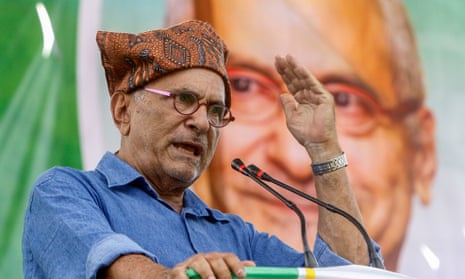Asia’s youngest nation of Timor-Leste will hold the second and final round of its presidential election on Tuesday, with Nobel laureate Jose Ramos-Horta the clear frontrunner in the poll.
Ramos-Horta, who received 46.5% of votes in the first round last month, is up against incumbent president “Lu Olo” Guterres, who got 22.1%, in a ballot widely seen as key to the nation’s political stability.
Political fractures have underscored this election, with Ramos-Horta, 72, signalling that he may use presidential powers to dissolve parliament and call for early parliamentary elections if he wins.
Xanana Gusamo, Timor-Leste first president and head of the National Congress of the Reconstruction of Timor Leste (CNRT) party, has described the current government as “constitutionally illegitimate”.
The comment relates to 67-year-old president Lu Olo’s refusal to swear in more than half a dozen CNRT ministers after the 2018 elections due to investigations into their conduct, including alleged corruption.
The decision ignited the ongoing political impasse.

Ramos-Horta, who is backed by Gusmao, has said the nation can expect a “political earthquake” if he is elected.
“It would introduce a level of instability back into the Timorese political system,” Damien Kingsbury, an Timor-Leste expert and emeritus professor at Australia’s Deakin University, said of Ramos-Horta’s proposed dissolution of parliament.
“It’s difficult to see the parliament voluntarily dissolving itself, which really would be the only other way to resolve that conflict of opinion as to its legitimacy,” he said.
Approaching 20 years of independence after a brutal occupation by neighbouring Indonesia, the half-island nation of 1.3 million has in recent years grappled with political instability and the need to diversify its economy away from oil and gas revenues.
The next president will be sworn in on 20 May, the 20th anniversary of Timor-Leste’s restoration of independence.
